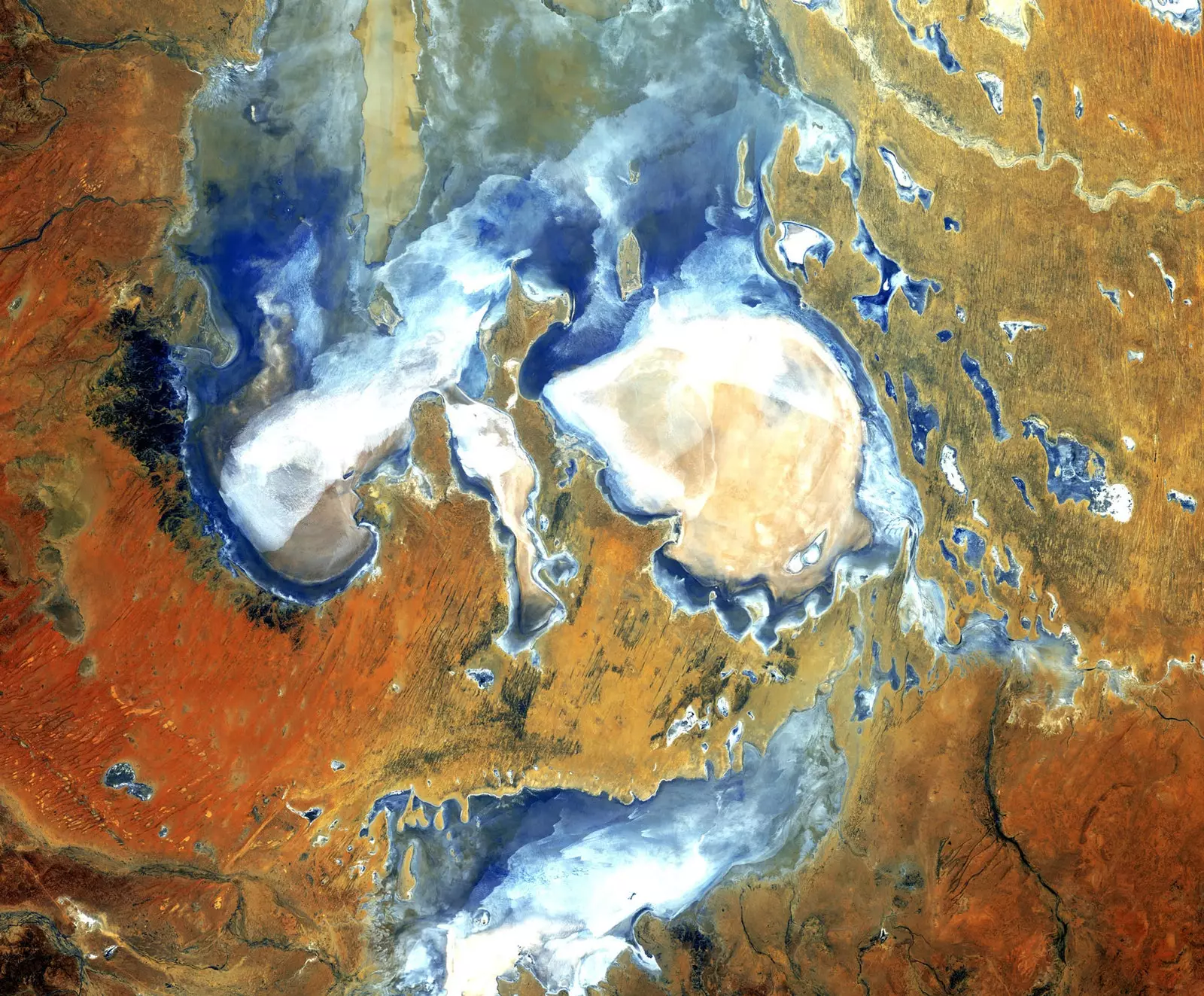
Lake Eyre, Australia
It was the year 2000. A time in which many travelers suffered from the fever for the eight-thousanders and the peaks. However, as if the turn of the century had brought a change of mentality, The traveler Josu Iztueta asked himself a question against the current: What will the lowest points in the world be like?
From that doubt came an expedition made up of a group of very different professionals who for nine months traveled to the lowest depressions on each continent: Death Valley in North America, Lake Eyre in Australia, the Coal Lagoon in South America, the Caspian Sea in Europe, the Dead Sea in Asia, and Lake Assal in Africa.
Among that group of adventurers was the young journalist Ander Izaguirre, that at that time he was no more than 24 years old, and that he collected everything he saw and heard with great sensitivity and transferred it to paper in The basements of the world, a book now republished by Libros del K.O.
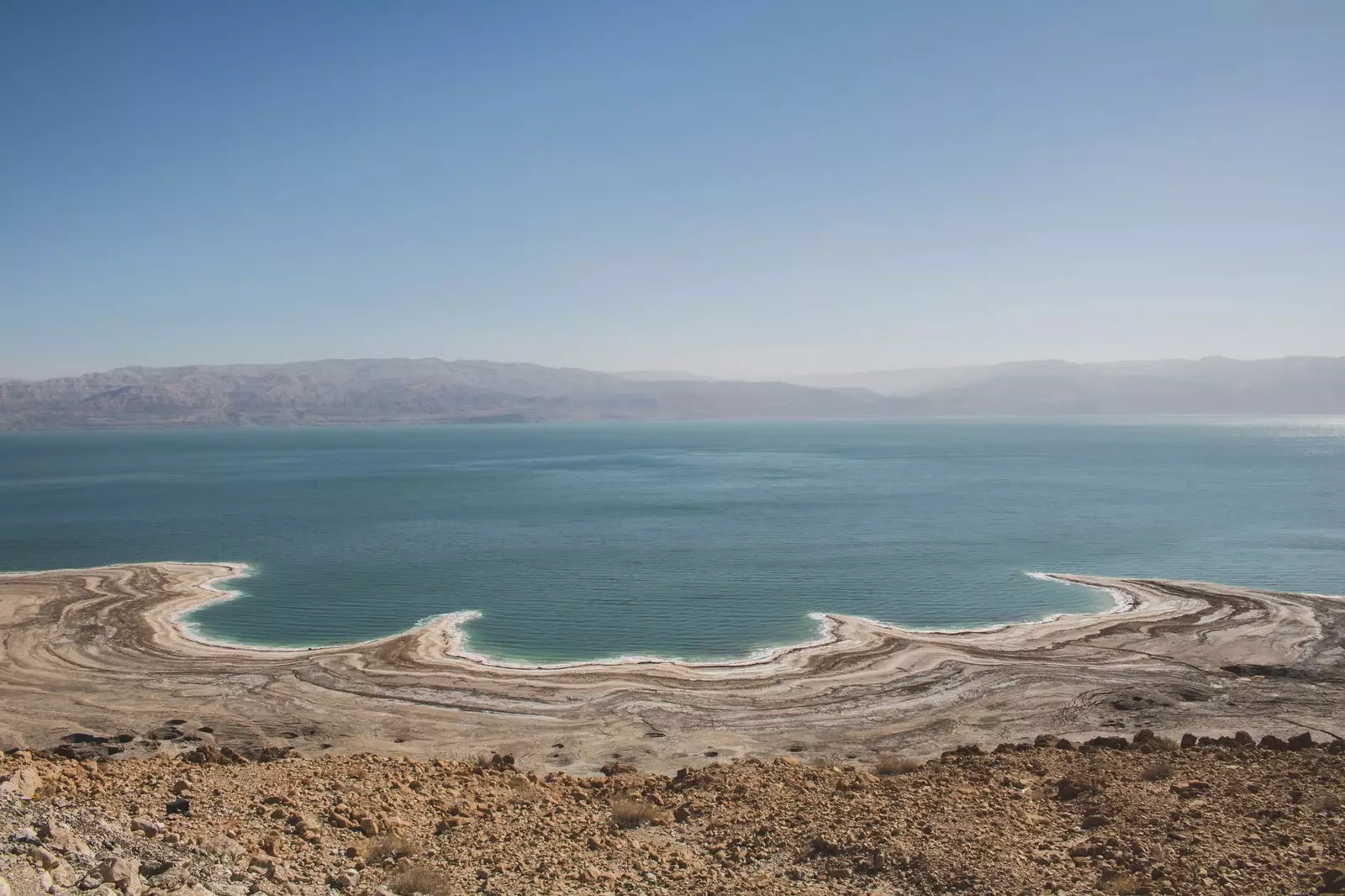
Dead Sea
Some remote places that have certain similarities, since they are usually closed basins or depressions in very hot spots and with little rain. “In almost all of them there is a dry lake or a salt pan and they are usually very extreme places: very hot and difficult deserts for life,” Izaguirre told Traveler.es
However, against all odds and unlike the tops of the world, people live there. “Humans are a very particular species that go to unlivable places because something attractive appears. On these sites I found very good stories of miners, settlers, nomads…”. Ultimately, the low point was an excuse to go find people's stories.
EXPLAIN A PLACE THROUGH PEOPLE
“It was not about telling our adventure as if it were a feat. It would seem self-centered to me." , maintains Izaguirre. And it is that, as a journalist, he sought to tell stories of others that are fascinating to him.
Listen to the lives of illegal sturgeon fishermen in the Caspian Sea, see how the sheep shearers live in Patagonia or feel what the aborigines of Australia are like.
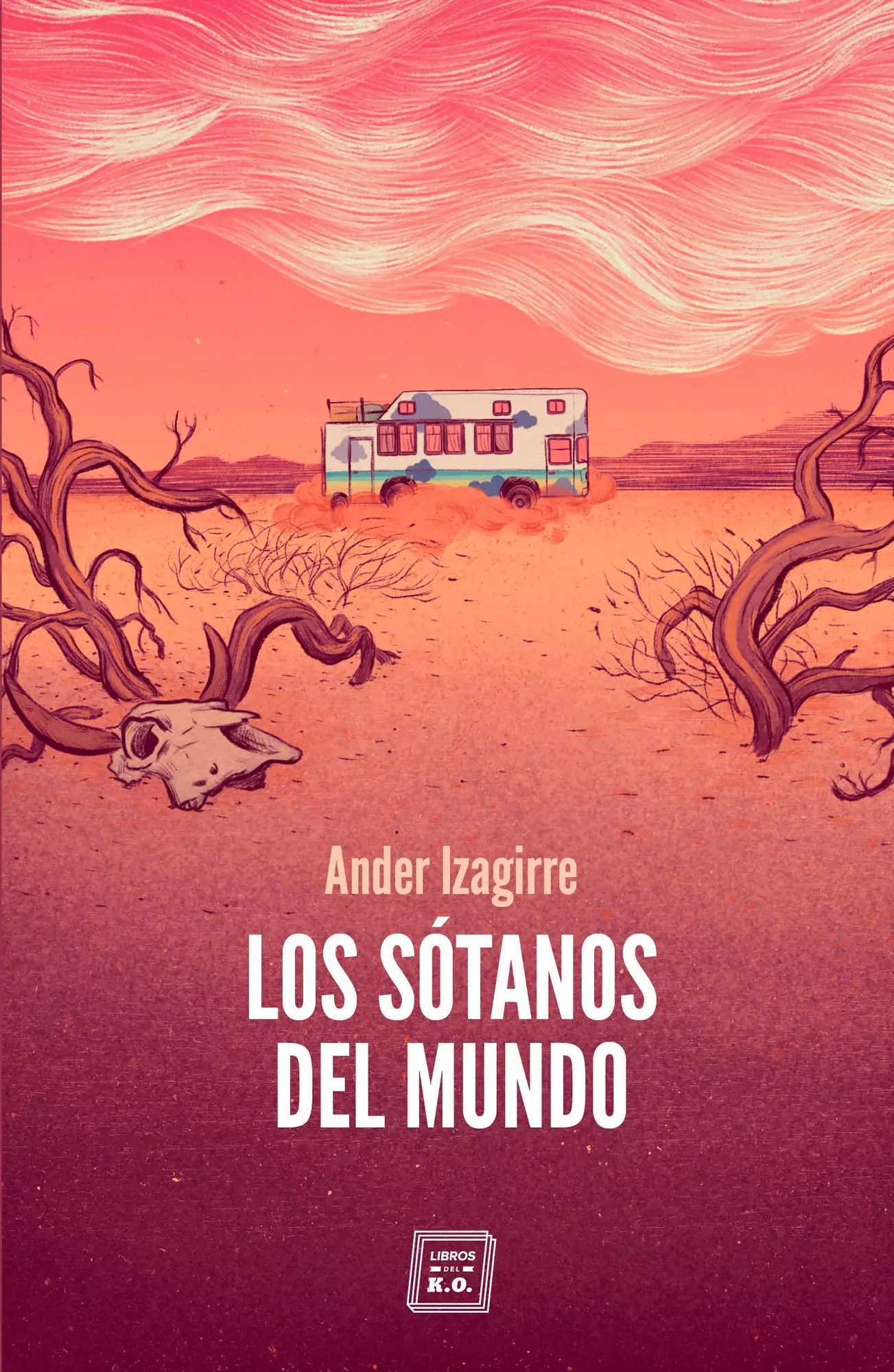
'The basements of the world': a journey to the lowest points on Earth
“I am always surprised by the human variety. Cultures, ways of adapting to life, mentalities... that seems like a treasure to me. Nobody lives in the eight-thousanders, but here they do. That was the advantage for the journalist looking for stories.”
And, after visiting those areas against nature for human life, why do you think we have the need to occupy those impossible spaces? “There is always a resource that someone tries to take advantage of. There are places like Lake Eyre in Australia where practically no one lives: it is a 10,000 km2 salt crust, the size of Navarra, where it is extremely hot”.
There, however, is Coober Pedy, an incredible city carved out of the desert, as temperatures on the surface are unbearable. Some 4,000 people gathered in this place at the beginning of the 20th century because there they discovered large fields of opal, a semi-precious stone. A form of wealth that many people are still seeking today.
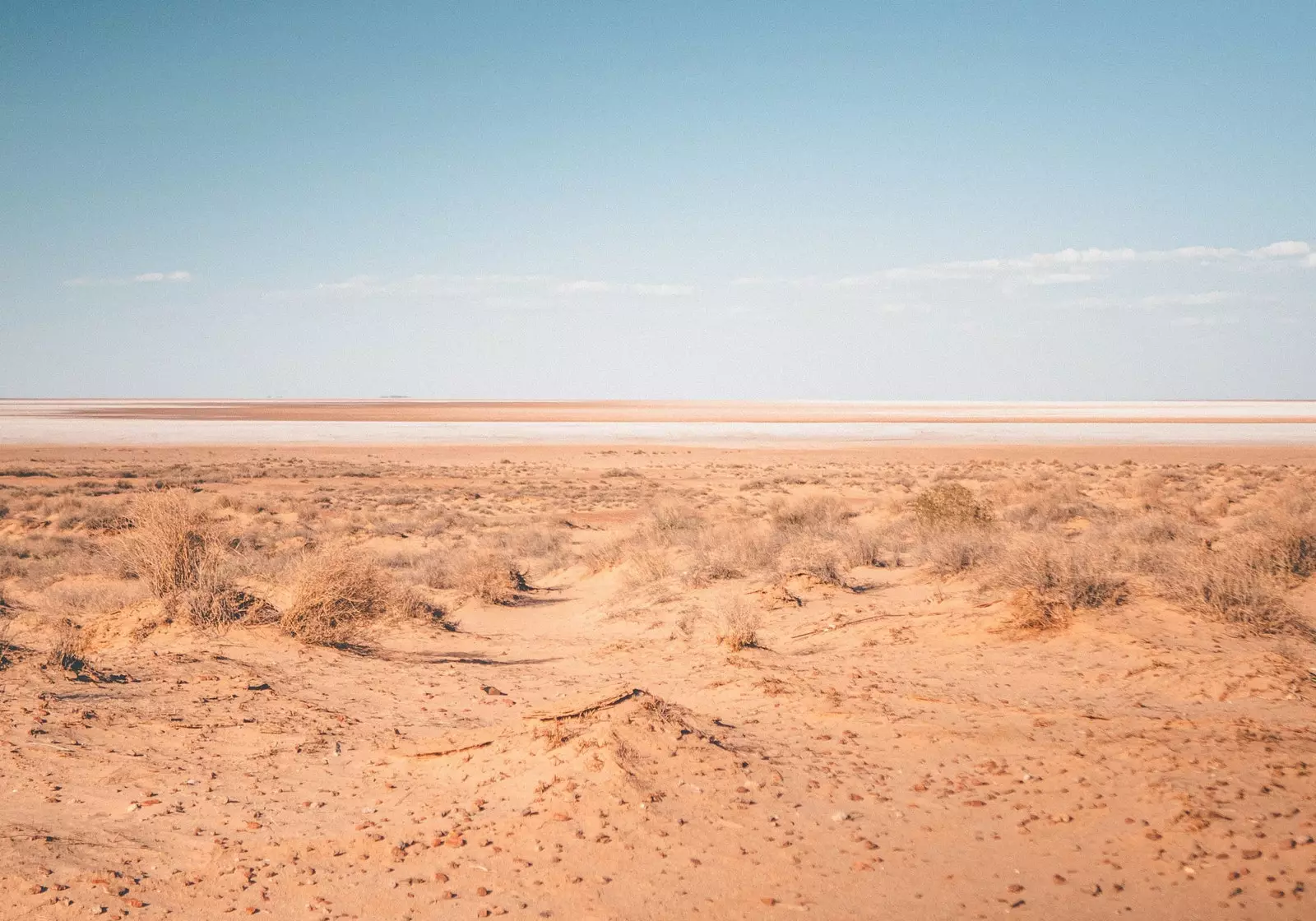
"There are places like Lake Eyre in Australia where practically no one lives"
"These places are also characterized by the fact that tough people live in them," he continues. And, although he does not find it very prudent to generalize, the writer maintains that this characteristic was present in all the points he visited.
“They are very stoic people who gave you a very interesting vision of life. Above all because we, who sometimes think of ourselves as great adventurers with great merits, we do not realize that we are a capricious and somewhat comfortable traveler. That you would surely not be able to kill yourself where they live, ”he points out.
A contrast in ways of life that is interesting for any traveler, as it makes them put themselves in their place. "That's why, I am against creating an epic story of a journey, unless you are Amundsen. We, who are going for a limited time, do not think we can give ourselves great merits. Nevertheless, I think we have to focus on the people who live there. Now that is complicated”, he concludes.
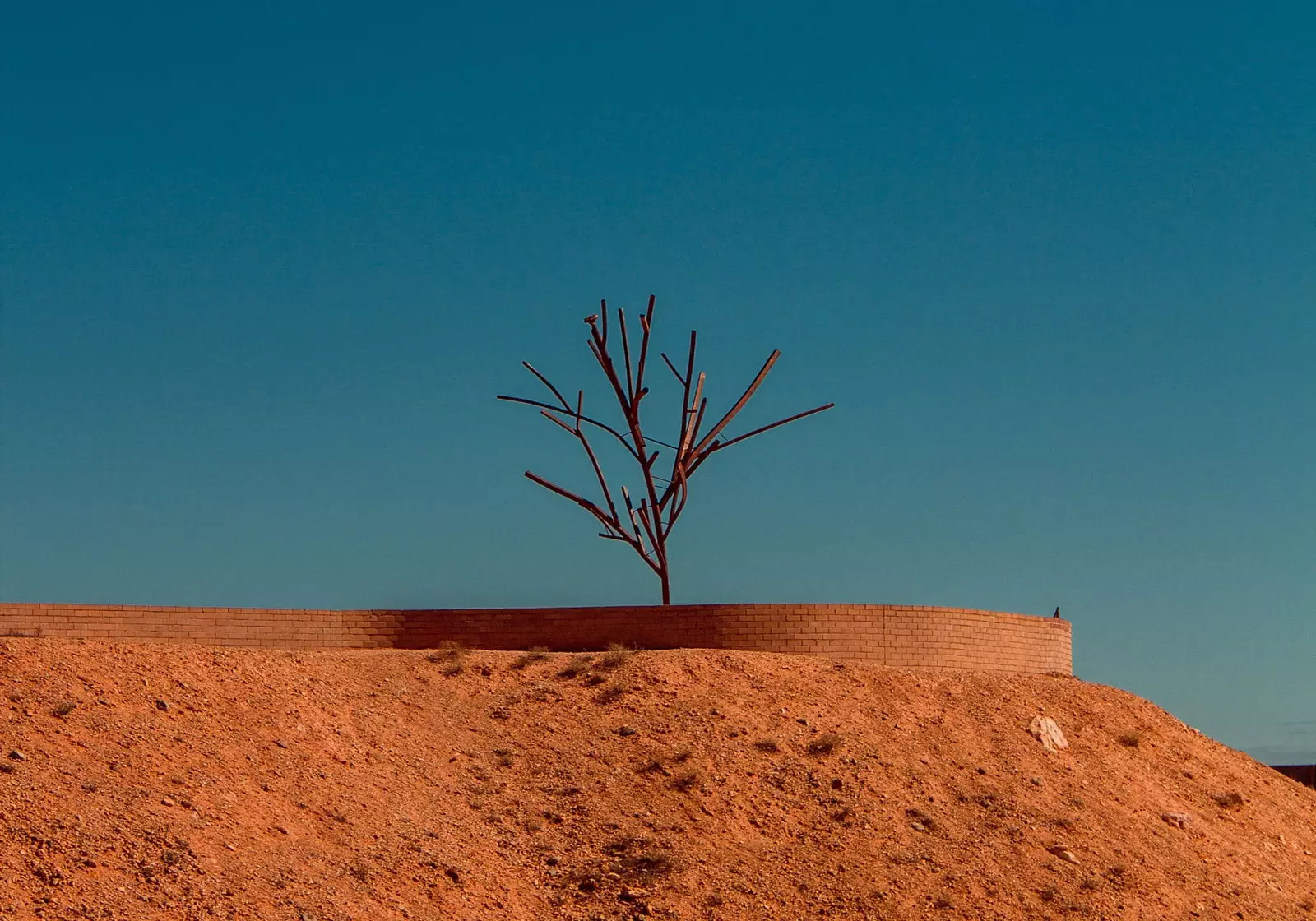
Coober Pedy, Australia
WITHOUT CONTEXT THERE IS NO REALITY
In his book, Ander Izaguirre includes general features of the countries and areas he visits. Something that you think is necessary “You cannot understand a landscape and a society if you do not know its past in broad strokes”.
And he explains it through his experience in Australia: "If you arrive in Australia, the traveler sees that there is a difference, that something happens with the aborigines, that you do not find them in the bank offices... If you read a little about what happened in their history, you realize that they were almost exterminated. The traumas of today's society are explained through its history. Not noticing it can give a distorted view of reality.
Just like it happens in Djibouti, Africa, the country that most surprised Izaguirre. "It's very complicated. First because it is the hottest country in the world and the only thing you wanted was to stay in the shade. Also, it was a country that has just gone through a civil war, that had a lot of poverty, that had a very curious colonial history…”.
But what most caught his attention about the place was the crack that can be clearly seen there and “that is going to split Africa in two. It is perhaps for us the most remote and surprising”, he clarifies.
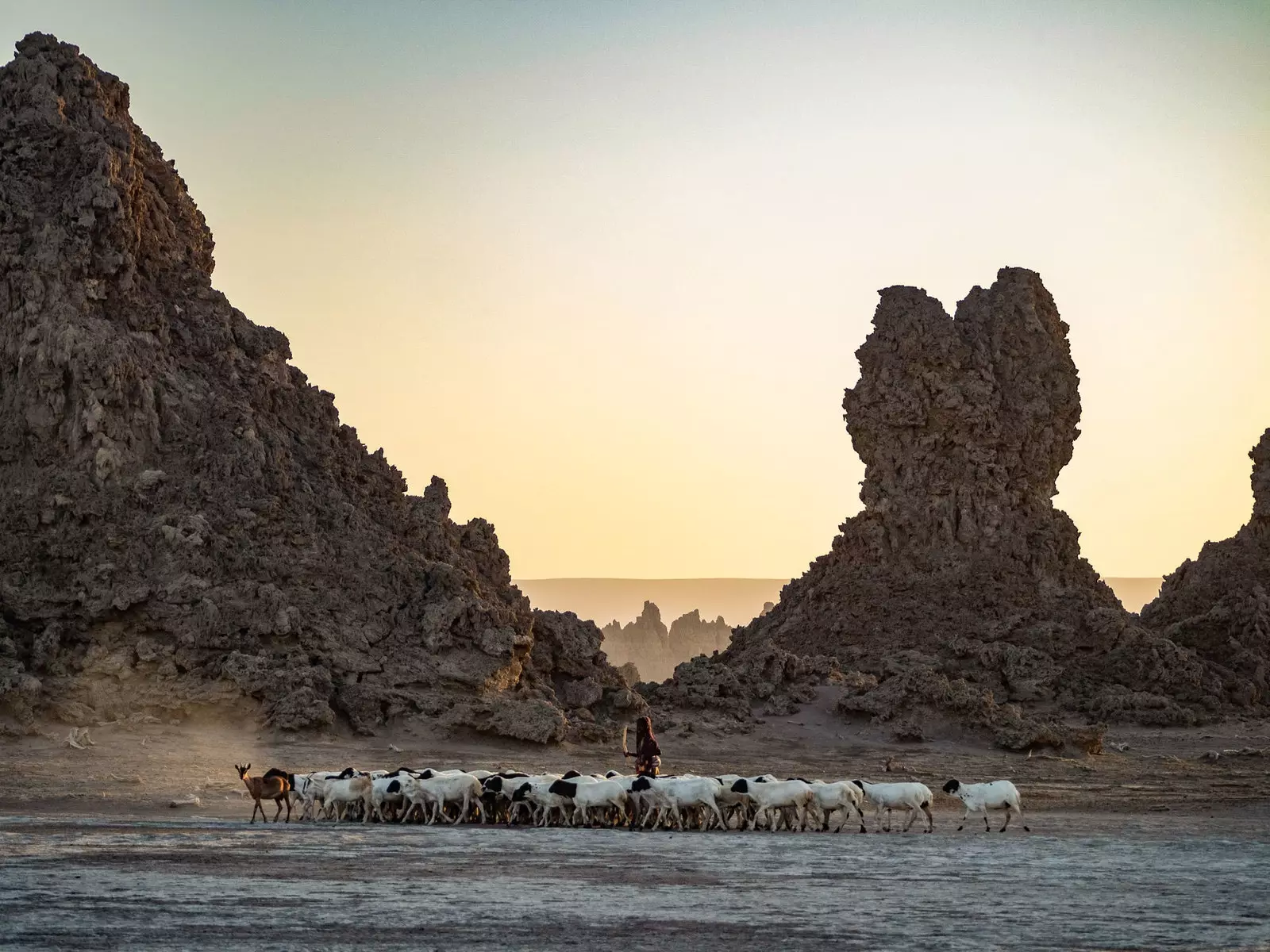
Lake Abbe, in Djibouti (Africa)
GEOGRAPHY, AN ELASTIC SCIENCE
Reading The Basements of the World, one realizes how shaky geographical measurements are. So much so that Izaguirre baptizes geography as an elastic science, since many times it is difficult to calculate which is the lowest point.
“This also happens with the highest peaks. These are figures that may vary over time. I like to play with this to question whether it is important to reach the highest point, the lowest…. To relativize all this”.
"I also find it funny that something that we consider immovable like the earth's crust, which is the strongest thing we have in our lives, also varies. The Dead Sea is evaporating and the shore is lower and lower. I like those games for relativize the figures and how we use them to tell the stories of others or our own”.
Tell the lives of others, let amazement be the pulse to move, to know. The astonishment and the idea that our life is one more. Travel to verify other possibilities of life.
